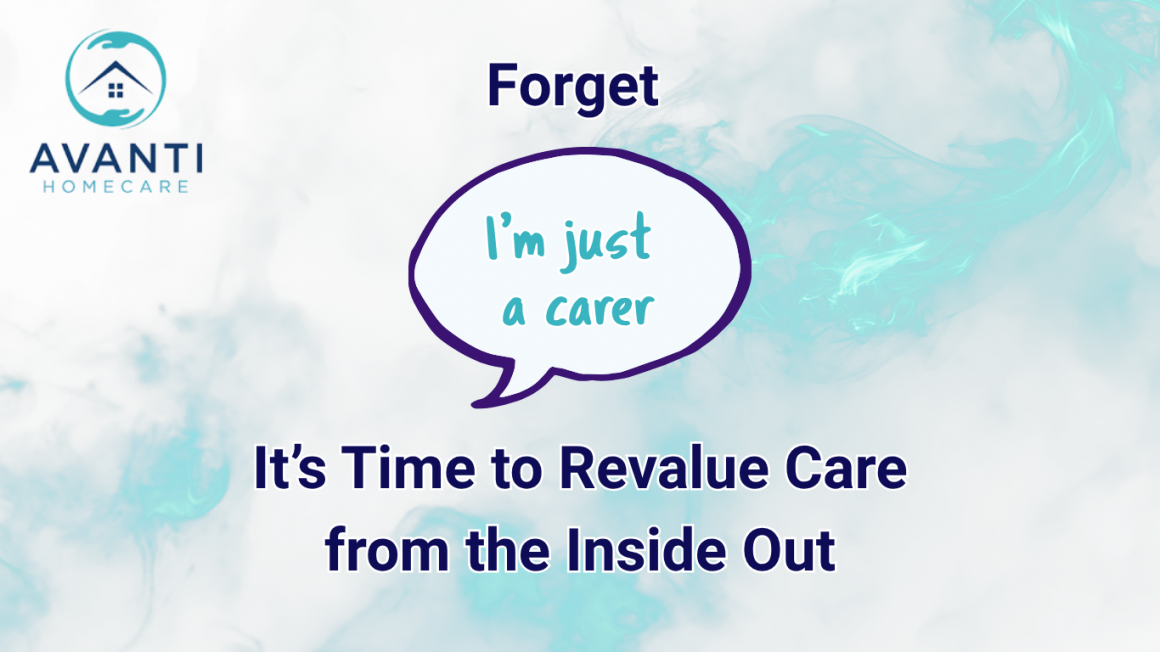Caring for others is one of the most important jobs there is, yet it remains one of the least recognised. Carers are the quiet professionals who make independence possible, enabling people to live safely and with dignity at home. They often bridge the gap between health and home life, spotting changes before anyone else does.
Despite this, care work is still too often viewed as low-skilled or temporary. That perception must change. If we want a fair, sustainable care system, valuing carers properly is where it begins.
The Invisible Workforce
Across the UK, professional carers deliver millions of hours of vital support every week. They help with personal care, medication, mobility, and companionship, and many manage complex needs that once required hospital care.
Yet carers rarely feature in national conversations about health and social care. We celebrate nurses and doctors, and rightly so, but often overlook those who make recovery and independence possible. When carers feel unseen, recruitment becomes harder, turnover rises, and the stability of the entire sector is put at risk.
Rethinking How We Fund Care
For too long, social care has been treated as an expense rather than an investment. Funding pressures mean some services are commissioned by the minute, leaving little room for carers to build meaningful relationships.
A system measured in minutes cannot deliver person-centred care. It also sends the wrong message about the value of the people providing it. Carers are professionals who use skill, empathy, and judgement every day. Their work deserves the same respect as other essential roles.
A new funding model is needed, one that recognises care as part of a wider health system, saving money for the NHS through prevention and early intervention.
Raising Care as a Profession
Valuing carers begins with professional recognition. Often, even the carers themselves will unknowingly undermine their role. We’ve frequently heard the comment, ‘I’m just a carer’, so we need to reaffirm that care is a valued profession to those working in the sector. Care work requires technical knowledge, emotional intelligence, and communication skills. Training should be structured, accredited, and supported by clear career pathways that encourage growth rather than turnover.
At Avanti Homecare, we invest in training and mentorship so carers can build confidence and specialist skills. We give a paid induction week, the opportunity to gain a NVQ Diploma, and ongoing advanced training throughout the year. When people feel supported and respected, the standard of care naturally improves.
Fair Pay and Working Conditions
Fair pay is central to change. Many carers earn less than those in less demanding roles, despite managing responsibilities that affect people’s health and safety. Competitive pay is not simply a reward for compassion, it is essential to stability and retention.
Sustainable funding from government and fair commissioning from local authorities would allow providers to offer better pay and conditions. At Avanti, we are proud to provide annually increasing top pay rates, paid travel time, flexibility, and recognition for our team. We want care to be seen as a career people can be proud of.
Dr Jane Townson OBE, Executive Director of the Homecare Association, recently shared her 2025 Work Survey Findings on LinkedIn. She called for urgent action to restabilise the homecare sector:
“Families across Britain are waiting for support that simply isn’t available in some places.
Government underfunding and penny-pinching contracts have already driven carers away.
Now they’ve pulled the plug on overseas recruitment too.
The result is predictable: people go without support, deteriorate and end up in hospital, and then hospitals struggle to discharge them. Providers face impossible choices.
There is no other business in the economy where Government would expect vital, skilled services to be delivered for free. It is unacceptable and unsustainable.”
The Role of Technology
Valuing carers is also about giving them the right tools and time to do their jobs well. Digital systems, such as Avanti’s family app, allow carers to record visits, share updates, and communicate with families. This improves transparency and reduces paperwork, helping carers focus on what matters most, the people they support.
Technology should enhance care, not replace it. When used well, it strengthens trust and supports the professional role of carers.
Changing the Conversation
Perhaps the biggest shift must happen in how society talks about care. It should be spoken of with the same respect as teaching, nursing, or emergency work. Care is skilled, human work that requires empathy, patience, and professionalism.
We must tell the real story of care, one of expertise and compassion. Providers, policymakers, and the media all have a part to play in changing how care is understood and valued.
Conclusion
Carers hold our communities together. They bring skill, warmth, and humanity to every home they visit. Yet for too long, they have been undervalued by the very systems that depend on them.
If we want a fair and compassionate future for care, we must start by recognising carers for what they truly are; professionals who make independence and dignity possible.
At Avanti Homecare, we are proud to invest in our carers, celebrate their expertise, and stand up for the respect they deserve.
Because when carers are valued, everyone benefits.
A huge thank you from all the team at
![]()


